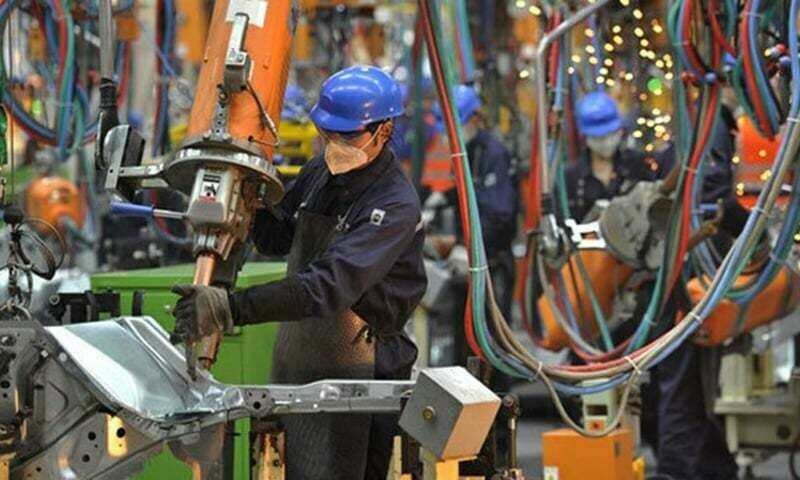ISLAMABAD: The Large-Scale Manufacturing (LSM) sector modestly returned to a positive trajectory in March, with production increasing by 1.79 per cent compared to the same month last year, according to data released by the Pakistan Bureau of Statistics on Friday.
This positive growth was attributed to a significant cut in the key interest rate to 11pc since the start of the current fiscal year.
The major industry production had been on a downward trend since August 2024 — except for October — due to both domestic and global factors. LSM posted positive growth from December 2023 to May 2024, but slipped into negative territory starting June 2024.
On a year-on-year basis, LSM declined by 2.65pc in August, followed by a 1.92pc fall in September. It recorded a marginal growth of 0.02pc in October before contracting by 3.81pc in November, 3.73pc in December, 1.21pc in January, and 3.51pc in February. In July 2024, LSM had expanded by 2.38pc.
However, on a month-on-month basis, LSM recorded a negative growth of 4.64pc in March.
During the first nine months of the current fiscal year, LSM posted a negative growth of 1.47pc compared to the same period a year ago. In FY24, the LSM sector contracted by 0.03pc, against a 0.92pc growth recorded in the preceding year.
The food group declined by 0.49pc in 9MFY25 on a year-on-year basis. Wheat and rice milling rose by 6.39pc, while starch and its products increased by 0.36pc. The substantial increase in wheat and rice milling was primarily due to improved crop harvests.
Vegetable ghee production fell by 1.99pc, and tea blended declined by 3.68pc. However, cooking oil production saw a slight increase of 0.08pc.
The textile sector recorded a 2.15pc growth in 9MFY24 on a year-on-year basis. Cotton yarn increased by 8.37pc, and cotton cloth by 0.78pc — together accounting for more than 80pc of the textile sector. The main driver of growth was a slight rise in export unit values amid higher external demand.
Garment exports grew by 7.62pc year-on-year, primarily due to foreign buyers diverting orders from Bangladesh to Pakistan.
Coke and petroleum products grew by 4.48pc in 9MFY25. Petrol production rose by 1.97pc, high-speed diesel by 9.32pc, kerosene by 33.06pc, lubricating oil by 0.74pc, furnace oil by 2.73pc, jute batching oil by 43.39pc, and solvent naphtha by 14.64pc.
In contrast, LPG production declined by 2.68pc, and jet fuel oil by 8.55pc.
The automobile sector grew significantly by 40pct in 9MFY25 on a year-on-year basis. This growth was mainly driven by a 36pc rise in the production of jeeps and cars, followed by a 197.16pc increase in LCVs, 90.77pc in trucks, and 57.29pc in buses. However, diesel engine production declined by 8.43pc during the review period.
Pharmaceutical product output increased by 2.32pc. Conversely, fertiliser production declined by 1.34pc.
Published in Dawn, May 17th, 2025


